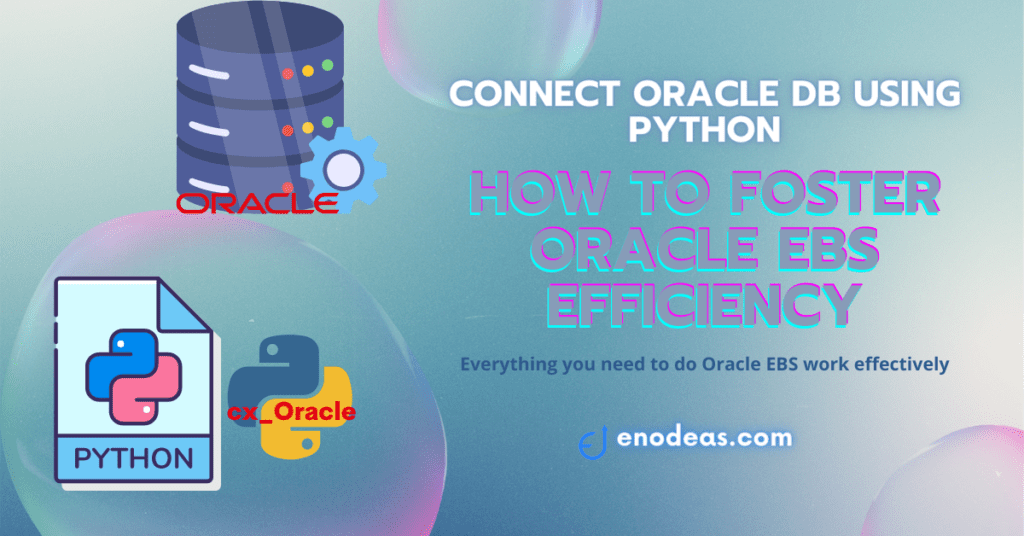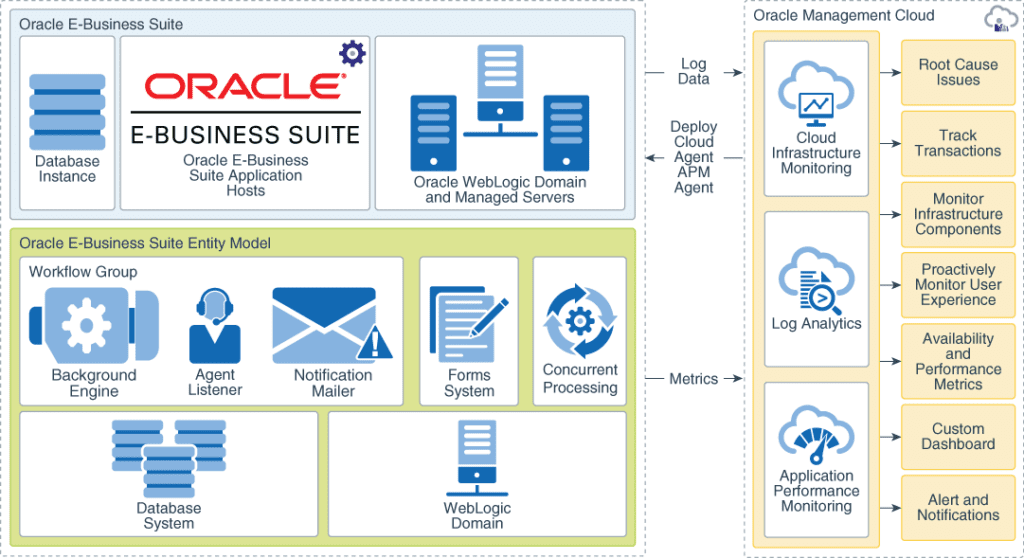
How to Enhance Oracle EBS Efficiency using Python Automation
As an Oracle E-Business Suite Technical expert, you know the importance of an efficient toolkit to streamline daily tasks. But did you know that adding Python to your skillset can take your Oracle EBS game to the next level? In this blog post, we’ll explore how Python becomes a valuable and versatile tool for various day-to-day activities within Oracle Applications.
Table of Contents
Automating Repetitive Tasks in Oracle EBS using Python
Data Manipulation and Analysis using Python
Integrating with External Systems using Python
Custom Extensions and Enhancements
Monitoring and Alerting of Oracle EBS processes
Automating Repetitive Tasks in Oracle EBS using Python
Python’s power lies in automating repetitive and time-consuming tasks. With Python scripts, you can minimize manual intervention in data extraction, loading, and report generation, saving time and reducing the risk of errors. This way Python is very useful in automating Oracle EBS tasks.
Data Manipulation and Analysis using Python
Leverage Python’s rich ecosystem, including Pandas, NumPy, and SciPy, to perform complex data manipulations and analysis on EBS data. Transform, clean, and analyze data fetched from the Oracle Database using SQL queries, gaining deeper insights for data-driven Oracle SCM decisions.
Integrating with External Systems using Python
In a modern enterprise environment, seamless communication between systems is vital. Python’s simplicity and versatility make it ideal for integrating Oracle EBS with external applications, APIs, or web services, bridging the gap between systems effortlessly.
Custom Extensions and Enhancements
Python allows you to create custom extensions and enhancements within Oracle EBS. Develop custom EBS modules using Python to integrate with existing SCM functionalities, unlocking new possibilities for process optimization.
Monitoring and Alerting of Oracle EBS processes
Employ Python to build monitoring and alerting systems for critical SCM metrics. Get real-time notifications for inventory levels, order statuses, or supplier performance, enabling prompt response to any deviations.

Machine Learning and Predictive Analytics (Automation with Python & Oracle)
Python’s popularity in machine learning and data science presents exciting opportunities for predictive analytics in Oracle EBS SCM. Forecast demand, optimize inventory levels, and predict potential supply chain disruptions with machine learning models.
An Oracle Analytics predictive model applies a specific algorithm to a dataset to predict values, predict classes, or to identify groups in the data. You can also use Oracle machine learning models to predict data.
Oracle Analytics includes algorithms to help you train predictive models for various purposes. Examples of algorithms are classification and regression trees (CART), logistic regression, and k-means.
You use the data flow editor to first train a model on a training dataset. After the predictive model has been trained, you apply it to the datasets that you want to predict. You can make a trained model available to other users who can apply it against their data to predict values. In some cases, certain users train models, and other users apply the models.
Conclusion: Automation with Python & Oracle
Python is a game-changer for Oracle e-Business Suite Technical experts like you. Its versatility, ease of use, and extensive libraries make it a valuable tool for automating tasks, analyzing data, integrating systems, and extending Oracle R12 functionalities. Embrace Python to enhance efficiency, gain deeper insights, and become a sought-after expert in the industry. Dive into the world of Python and unlock its transformative power for your Oracle e-Business Suite journey. We will come back with more details on this soon. Stay tuned.
